High cholesterol is a common health condition in the US and across the globe. It's so common, in fact, that the Centers for Disease Control and Prevention (CDC) estimates that around 93 million Americans over the age of 20 have high cholesterol. Often referred to as a silent condition, most people suffering from high cholesterol don't present symptoms and may not even be aware of their condition until they get tested by their doctor.
This guide will explore the ins and outs of cholesterol and how you can reduce your cholesterol naturally by making some lifestyle changes.
What Is Cholesterol?
Cholesterol is a waxy, fatty substance that is produced by your liver. It's a type of lipid that plays a vital role in the formation of cell membranes, certain hormones, and vitamin D. As cholesterol doesn't dissolve in water, it's unable to travel through the blood on its own. The liver produces lipoproteins to help move cholesterol around your body.
Lipoproteins transport cholesterol and another type of lipid known as triglycerides through the bloodstream. There are two main sorts of lipoprotein: low-density lipoprotein (LDL) and high-density lipoprotein (HDL). If the levels of LDL cholesterol in your blood are too high, you most likely have high cholesterol. Left untreated, high cholesterol can cause numerous health issues, such as heart disease, heart attack, and stroke.
Symptoms of High Cholesterol
In the majority of cases, high cholesterol doesn't cause any symptoms, and it often goes undetected until more serious complications like a heart attack develop. Because high cholesterol is such a silent condition, regular cholesterol screening is crucial. Experts recommend that anyone over the age of 20 should speak to their doctor about routine cholesterol screening.
While it's generally not symptomatic, in extreme cases of high cholesterol, you may detect some warning signs such as:
- Nausea
- Numbness
- Slurred speech
- Chest pain
- Shortness of breath
- Extreme fatigue
- High blood pressure
- Cold extremities (fingers and toes)
What Causes High Cholesterol?
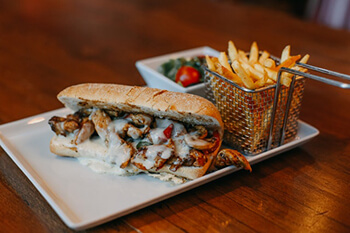
There are several factors that can increase the risk of developing high cholesterol. Here are the most common:
- Eating a lot of foods that are high in cholesterol, saturated fats, and trans fats, such as processed meats, fried foods, and baked goods.
- Being overweight or obese.
- Smoking.
- Inactivity/Not exercising regularly.
- Genetics - A family history of high cholesterol can increase your risk of developing it.
- Other health conditions like diabetes, kidney disease, or hypothyroidism.
The Different Types Of Cholesterol
You may have heard people refer to "good" and "bad" cholesterol. In this section, we'll take a closer look at what these mean.
LDL Cholesterol - "Bad Cholesterol”
We already know that the body contains low-density lipoprotein (LDL cholesterol) which transports cholesterol to the arteries. LDL cholesterol is often referred to as “bad cholesterol” because if you have too much LDL cholesterol in your body, it can build up on the artery walls, narrowing your arteries and limiting blood flow. This is known as cholesterol plaque. A buildup of cholesterol plaque can lead to serious complications. The limited blood flow increases the risk of blood clots, which can cause heart attacks and strokes.
HDL Cholesterol - “Good Cholesterol”
Your body also contains high-density lipoproteins (HDL cholesterol). HDL cholesterol is often referred to as “good cholesterol” because healthy levels of HDL cholesterol can reduce the risk of blood clots, stroke, and heart conditions. How does it do this? HDL cholesterol helps prevent the buildup of cholesterol plaque by aiding in returning LDL cholesterol to your liver so it can be eliminated from your body.
Triglycerides - Another Noteworthy Lipid
While Triglycerides aren't the same as cholesterol, they are another important type of lipid. Triglycerides are an energy source for the body. When you consume more calories than you can use immediately, the excess calories are converted into triglycerides by your body and stored in your fat cells. If you consistently take in more calories than your body uses, your triglyceride levels may become elevated. This increases the risk of health issues such as stroke and heart conditions.
Triglycerides levels, just like cholesterol, should be routinely checked by your doctor.
Getting your Cholesterol Levels Checked
Expert sources such as the American Heart Association recommend that adults over the age of 20 get their cholesterol levels checked every 4 to 6 years minimum. People with a family history of high cholesterol or cardiovascular disease should get tested more frequently to detect early signs.
To test your cholesterol level, your doctor will perform a simple blood test. This test will show your total cholesterol level and the level of HDL cholesterol, LDL cholesterol, and triglyceride levels in your blood. If those tests show high levels of LDL, this indicates that you have high cholesterol.
What Complications Can High Cholesterol Cause?
Left untreated, high cholesterol can lead to a buildup of plaque on your arteries. This narrows the arteries, causing a condition called atherosclerosis. Atherosclerosis limits the blood flow through your arteries, increasing the risk of developing dangerous blood clots.
Atherosclerosis can lead to a number of serious complications, including:
- Angina, or chest pain
- Chronic kidney disease
- Gallstone issues as a result of bile imbalance
- Heart attack
- High blood pressure
- Peripheral vascular disease
- Stroke
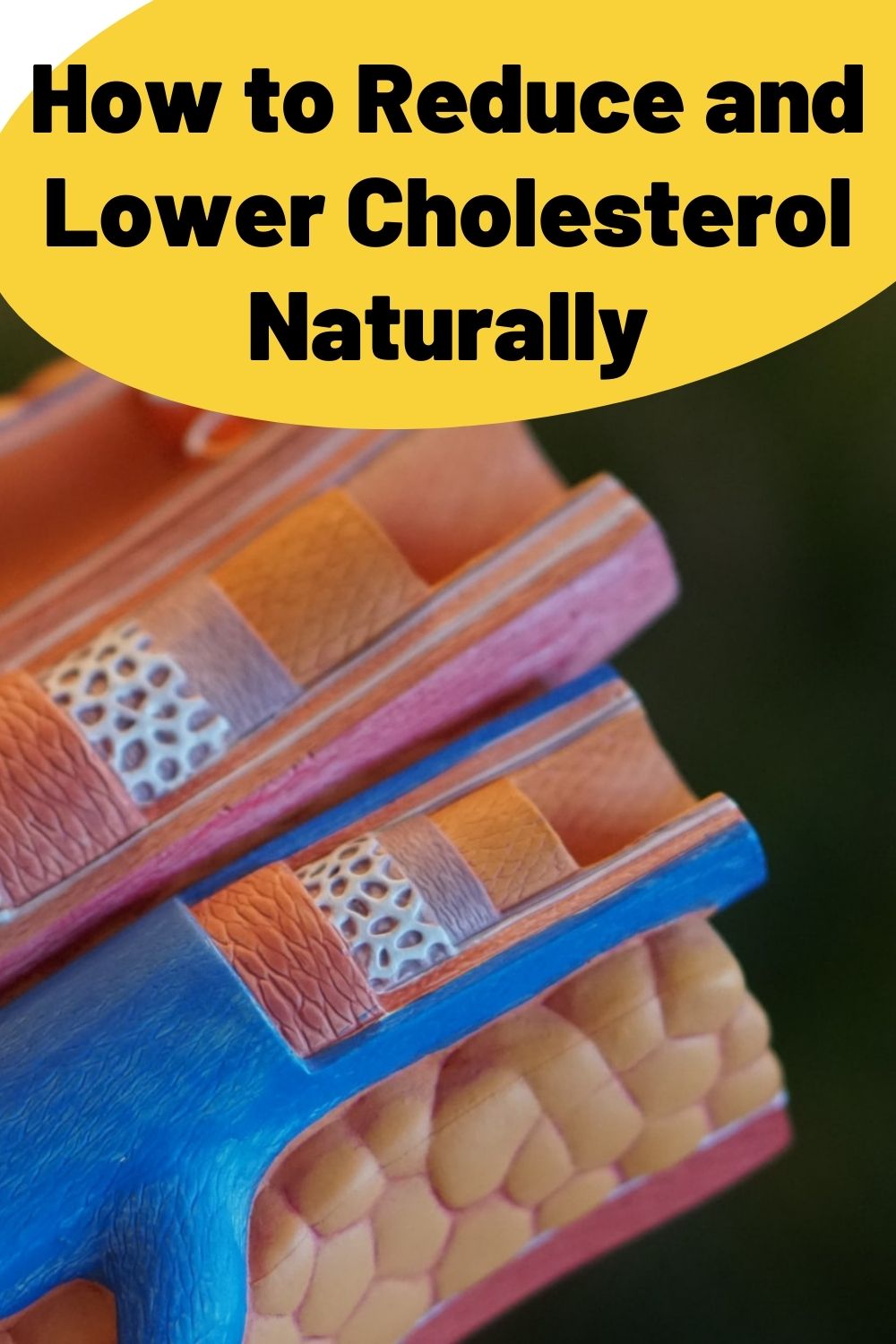
How to prevent high cholesterol
While you may not be able to control a genetic disposition to high cholesterol, that doesn't mean you can't manage other environmental factors. Lifestyle plays a large role in developing high cholesterol, so making some changes to your diet and exercise plan can greatly reduce your chances of developing high cholesterol.
Here are some ways you can lower your risk of high cholesterol:
- Maintain a healthy weight
- Exercise regularly
- Quit smoking tobacco products
- Reduce alcohol consumption
- Eat a high-fiber diet that's low in cholesterol and animal fats
- Get your cholesterol levels tested on a regular basis
How To Reduce Cholesterol Through Diet
One of the most effective ways to maintain healthy cholesterol levels is by maintaining a balanced diet. In this section of the guide, you'll find plenty of tips on what foods to avoid and what foods to eat regularly to keep your cholesterol levels healthy.
Diet Tips for Maintaining Healthy Cholesterol Levels:
For optimal heart health, use these guidelines to make healthier food choices.
Protein
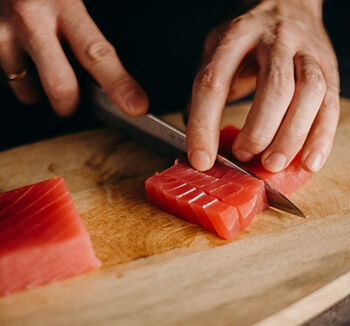
- Go for lean sources of protein like fish and seafood, and legumes such as beans, lentils, nuts, and seeds.
- Add 2 or 3 portions (150 grams each) of oily fish (fresh, frozen, or canned) to your diet every week.
- Try to have smaller amounts of eggs (up to 7 per week) and lean poultry such as chicken (without the skin).
- Aim to eat two servings of legumes such as lentils, chickpeas, or beans per week, going for the option with the lowest amount of sodium.
- Increase your intake of fish and other foods high in omega-3 fatty acids such as salmon, mackerel, tuna, herring, almonds, avocados, walnuts, and seeds like ground flaxseeds.
Fiber

Eat a variety of fiber-rich foods such as fruit, vegetables, and whole grains.
Incorporate more soluble fiber into your diet with foods such as oatmeal, beans, Brussel sprouts, sweet potatoes, broccoli, turnips, and pears.
Switch to wholegrain bread, cereal, pasta, and rice.
Aim for 5 portions of vegetables per day (a serving is around ½ a cup for cooked veg).
Snacks
Swap out snack foods for plain, unsalted nuts and fresh fruit.
Aim for two servings of fruit per day.
Plant-Sterol-Enriched Foods
- Eat 2 or 3 daily servings of plant-sterol-enriched foods (plant-sterol-enriched margarine, unflavored yogurt, milk, and bread) and opt for reduced-fat or no added sugar options.
Cooking Methods
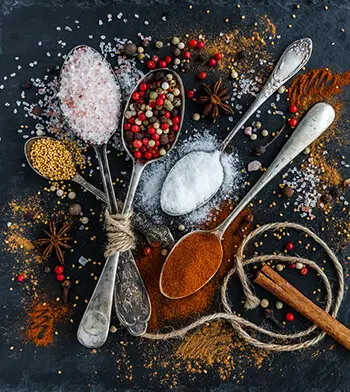
Choose baked, broiled, steamed, grilled, or roasted foods .
Cook your foods in healthy oils such as extra virgin olive oil, peanut oil, avocado oil, or sesame oil.
Season your food with herbs and spices to add flavor, rather than adding salt.
Replace spreads and margarine high in saturated fat, or bad fats (like butter or cream) with those made from healthy unsaturated fats, or good fats, such as extra virgin olive oil or sunflower oil
Portion Size
Another important consideration is portion size. Be mindful to not fill up on unhealthy foods and to only eat what you need.
When plating up your food, it's a good idea to stick to the golden rule: ¼ protein, ¼ carbohydrates, and ½ vegetables. Sticking to a diet rich in fruit and veg, whole grains, and plant-based protein can substantially reduce LDL cholesterol as well as blood pressure.
Foods to Avoid Due to High Fat Levels
It's best to avoid foods that are high in cholesterol, saturated fats, and trans fats such as:
- Limit fried foods, fast food, takeaway foods, and pre-packaged options to once a week. This includes creamy pasta dishes, french fries, pastries, pies, pizza, and hamburgers.
- Reduce your intake of salty, fatty, high-sugar foods such as crisps, chocolate, pastries, and cakes to once a week.
- Limit red meat to 1-3 times a week.
- Avoid processed meats like sausages and deli meats (such as salami or chorizo).
- Processed foods, especially those containing cocoa butter or palm oil.
- Baked goods like cookies, muffins, and other sugary treats.
- Replace full-fat dairy products with low-fat dairy products.
Diet and exercise can go a long way when it comes to lowering cholesterol, but you need to supplement this with medication, such as statins, to manage cholesterol levels and reduce the risk of health complications.
Natural Home Remedies That Can Reduce Cholesterol

While not FDA approved, there are several herbal supplements that could help reduce cholesterol. Many people claim that the following nutritional supplements can aid in lowering high cholesterol:
- Astragalus
- Blond psyllium, found in psyllium seed husk
- Fish oil
- Garlic
- Green tea extract
- Ground flaxseed
- Hawthorn
- Plant sterol and stanol supplements
- Whey protein
If you're already taking medication for high cholesterol or other conditions, always speak to your doctor before taking herbal supplements.
Key Takeaways
High cholesterol can lead to serious health complications when not managed properly. Nevertheless, with routine testing, a balanced diet, regular exercise, and a healthy lifestyle, you can reduce your risk of high cholesterol.
Like most things in life, the key to maintaining healthy cholesterol is moderation. It's important to have a balanced diet, but that doesn't mean your food options have to be limited. By making a few small changes to your grocery list and becoming more active, you can effectively reduce cholesterol the natural way.


